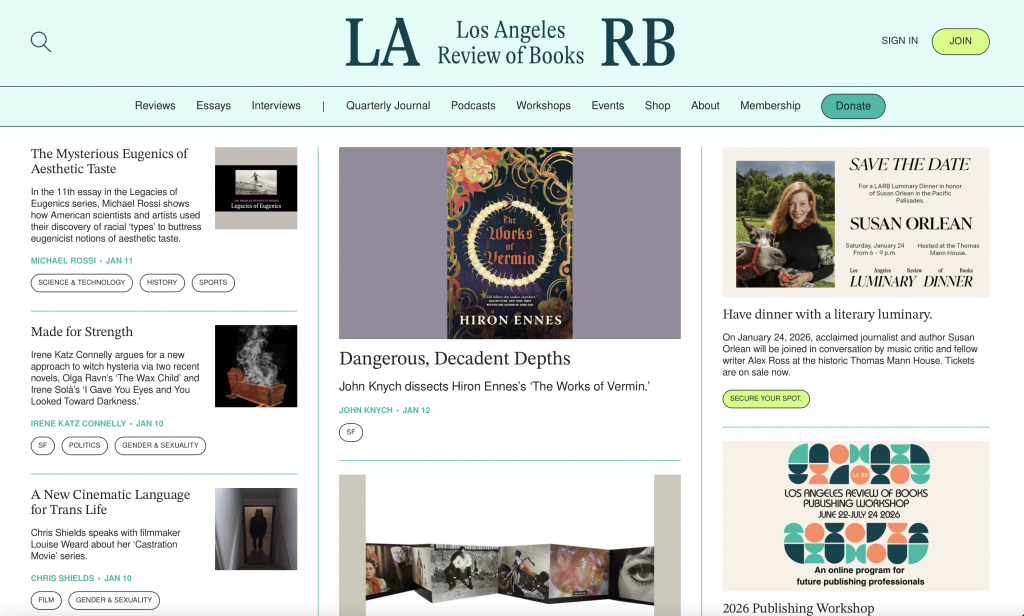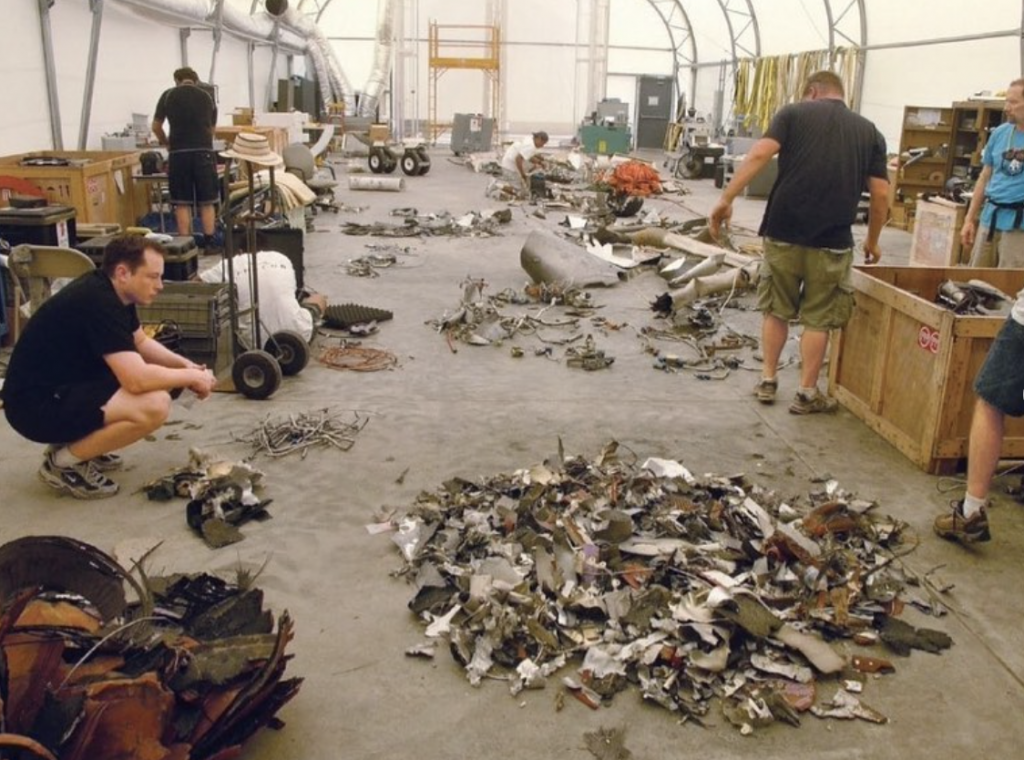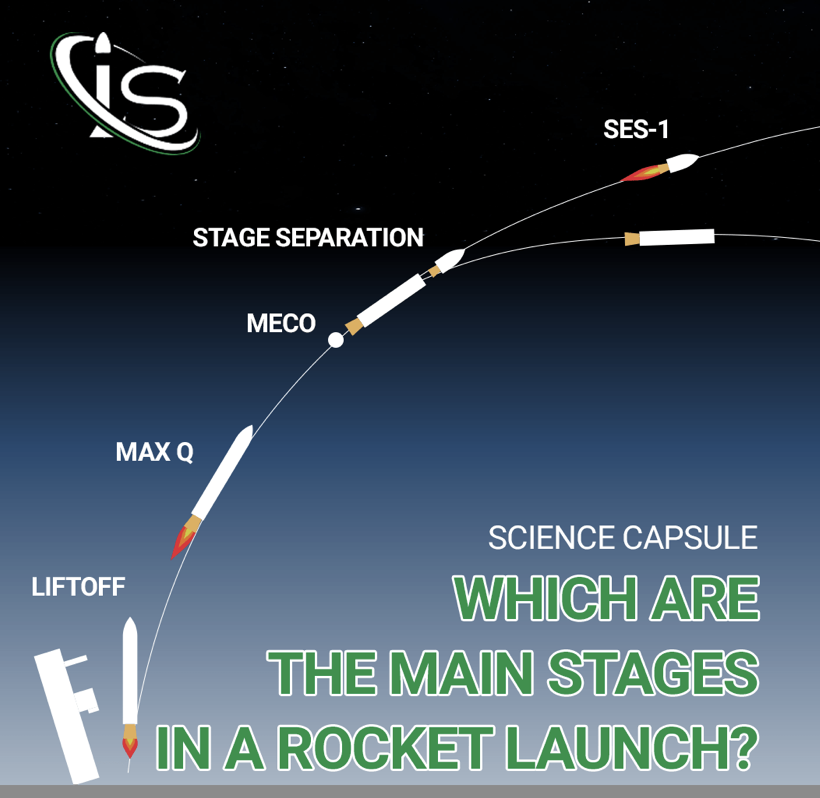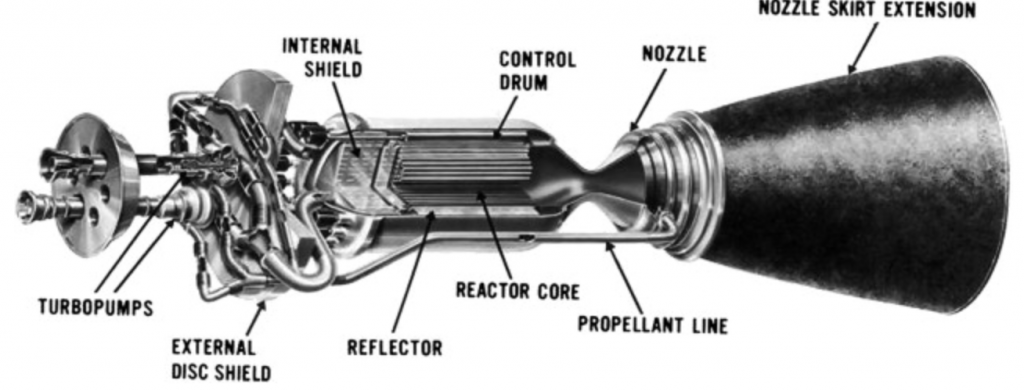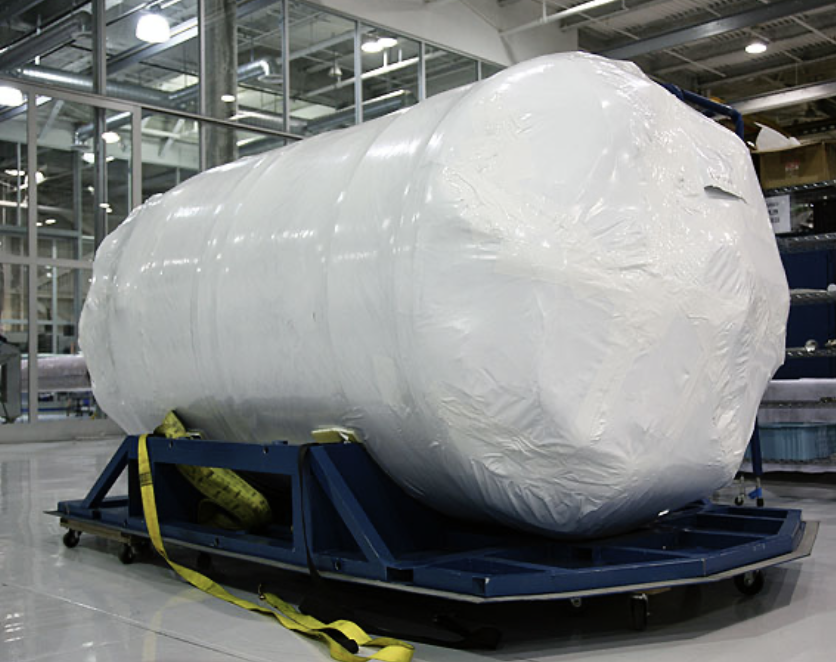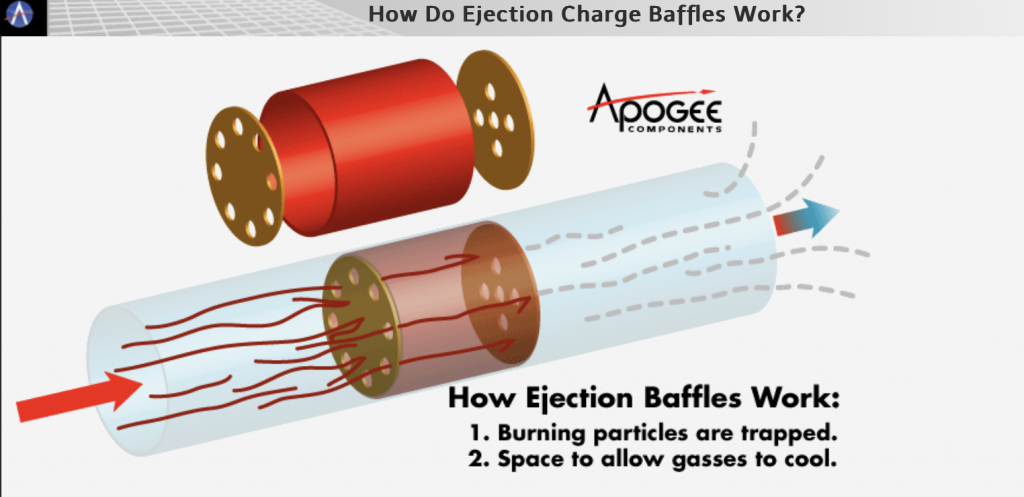Full Verbatim Transcript:
[00:00:02.320] – John Knych
Hello, today we have Robert Zubrin with us, the founder of the Mars Society. He is also the author of The Case for Mars, published in 1996, and numerous books on the exploration and settlement of Mars. He is also a nuclear engineer by training. Robert, thank you for being here today. My first question is: what are you working on now, and why are you working on this despite all the challenges of settling Mars?
[00:00:31.920] – Robert Zubrin
I’m currently working on some defense technology that I cannot discuss. It involves balloon systems. However, balloons can also be used to support and advance the exploration of Mars. I believe they should be used for that purpose.
[00:00:52.000] – John Knych
Balloons could assist with aerial exploration, correct? They could carry cameras, ground‑penetrating radar, and other sensors. Operating only a few kilometers above the surface would make them roughly 100 times closer than a satellite orbiting at 300 kilometers.
[00:01:20.150] – Robert Zubrin
So there’s all kinds of details you can see with cameras, ground pénétrating, radar can go much deeper, because a radar return signal goes as the inverse fourth power of the distance. So there’s a lot we could do with balloons on Mars.
[00:01:36.560] – John Knych
Excellent. And in your book, The New World on Mars, which is your most recent publication, 2021, you cover a wide range of practical challenges, solutions. And I read, too, that you’ve done nuclear engineering as well.
[00:01:55.300] – Robert Zubrin
Yes, I have.
[00:01:56.540] – John Knych
You made a discovery of how carbon dioxide… Of nuclear rocket using indigenous Martian fuel.
[00:02:05.880] – Robert Zubrin
This question is-Yeah, using carbon dioxide as propellant, yes. And I really should have been nuclear, rocket using indigenous Martian propellant. But NIMF sounded cooler than NIMF, so I called it fuel.
[00:02:23.760] – John Knych
Yes, the space world likes their acronyms. So you obviously probably know about KRUSTY, right ?
[00:02:33.040] – Robert Zubrin
Yes.
[00:02:34.020] – John Knych
How do you think KRUSTY will be used with Mars settlement ? Do you think what NASA has accomplished already is enough for providing all of the power needed ? How do you Will there be another iteration of Crusty ? Do we still have a long way to go for how nuclear power will work on Mars ? Are we close ?
[00:02:54.260] – Robert Zubrin
Well, KRUSTY is much too small. KRUSTY played a very useful role in getting NASA back into the nuclear game. Then, the person who made that possible, his name was David Postman, who was from Los Alamos. He said, Look, here’s the simplest way to do a nuclear reactor, a small one, and we could do this straight away. They did. But really, to do NASA’s design reference mission, you need a reactor with 30 kilowatts. To do Mars Direct, vous besoin de 100 kilowatts. To do Musk’s Mars plan, you need 600 à 1 000 kW. Et donc, vraiment, le 100 kilowatts reactor is what would be good. You could use it for Mars Direct, it would have a margin against NASA’s mission, and you could use groups of them to accomplish Musk’s mission. As far as I can see, there is no such programme that has been initié with the required goals, and drive, and deadlines, and funding to do that. So they need to get going. Yes.
[00:04:10.220] – John Knych
So it’s necessary, it needs to get bigger, the nuclear reactors, that will be Yes, they do. Excellent. So you mentioned must plan. This is a current event question. What are your thoughts on the recent SpaceX pivot to the moon ? Do you think it’s necessary ? Do you think that it’s a distraction ? What’s your view on that ?
[00:04:32.480] – Robert Zubrin
I think from a technical point of view, what he said was nonsense. We’re not going to make AI satellites on the moon. I think what he did was something to help juice his IP CEO of SpaceX and XAI. And a number of space companies are doing this. They’re trying to allège that the fact that they have rockets will provide the tickets to Treasure Island. Because look, AI is the Treasure Island, People are going to make a lot of money with AI in the near and medium term future. It’s what today compared to, say, the internet of the late ’90s. What you want to do is say, Well, yes, AI is the treasure island, and the rocket is the way to get there. But I don’t really think that business plan makes sense. It’s certainly much easier to put AI data centres on the ground. In terms of for them, it’s easier to generate power on the ground. So I think that, frankly, that this is part of Musk’s propaganda for his IPO.
[00:05:43.920] – John Knych
So do you think he’s still actually focused on Mars settlement, in that he’s just talking about the moon to, as you said, juice up the IPO ?
[00:05:52.700] – Robert Zubrin
I think what he’s focused on is making Starship fully operational. That’s what he’s actually focused on. And of course, that is something that gives you the ability to… I mean, if you wanted to do AI satellites, you would just launch them with the Starship. You wouldn’t build a lunar base with Starships and then launch them from the moon. That’s absurd. And that also gives you the ability to build a Mars base. NASA wants to build a Mars base. And that gives you the ability to build a Mars base or a Mars settlement. So there really is… I think his current focus, right now, is making the Starship fully operational. And what you do with the Starship, once it’s operational, you have options.
[00:06:38.440] – John Knych
Excellent. Robert, before this talk, I’ve read a couple de books that are critical of Mars settlement plans, because I wanted to have a balance. And my next question is, of all the criticisms of Mars settlement, which one do you find the most aggravating ? Meaning, the one that you think, look, we’re going solve this, we’re going to figure this out, because there was a driving optimism in your book that pushing new frontiers, it’s what humanity does, it’s what we have to do to continue to be innovatives. I’m sure you’ve received tons of criticism for your view of all of it, which bothers you the most ?
[00:07:22.560] – Robert Zubrin
The Wienersmith’s book, which was The City on Mars, or A City on Mars, which is by far the most successful of the anti-Mars books, and also a completely dishonest book. They present problems that have ready solutions, and don’t mention the solutions. More importantly, the fundamental thesis of the book is, they say, there’s absolutely no point in settling space. No one can have a better life by settling space, and no one can make money by settling space, so it’s not going to happen, and therefore, it needs to be banned. Now, if it wasn’t going to happen, why does it need to be banned ? They are demanding government action to prevent something that they say est impossible. Now, furthermore, they adopt this ridiculous argument that they got from a guy named Dudny, qui dit que loin de l’inviter l’avenir, le settlement de la Terre espéciale va endanger the human future, the settlement of space will endanger the human future because the Martians will start hurling steroids at the Earth and kill us all. I mean, this is just nuts. Ok, now, obviously, OK. First of all, they argue that there can’t be Martians because Mars settlement is impossible.
[00:08:50.480] – Robert Zubrin
But then let’s talk about, OK, but could the evil people in the military decide to out into space and get hold of astroïdes and use them as weapons of mass destruction ? Well, I’ve actually had, over the course of my career, a fair amount of dealing with the military, and I can tell you what they want in a weapon system. They want a weapon system that has readiness, that if you want to use it, you can use it. Now, they want a weapon system that cannot be misappropriated by the enemy, so it has to be secure. They want a weapons system that is secure, so that if you want to use it, you can use it. Now, they want a weapons system that cannot be appropriated by the enemy, so it must be secure. They want a weapons system that can have the advantage of surprise, meaning that the enemy does not know what is coming. They want precision. They want to destroy the enemy.They don’t want to destroy us at the same time that they destroy the enemy. They want to be selective. The asteroid weapon system has none of these attributes. It’s exactly the opposite. If you diverted an asteroid to go towards the Earth, it would take years to get here.
[00:10:02.840] – Robert Zubrin
On its way there, the enemy could go there and divert it, and it would only take the slightest diversion to take an asteroid that was headed towards the United States and make it head towards China instead, or vice versa. This is a weapon of mass destruction that is easily misappropriated by the enemy to be used against you. It’s not secure. It doesn’t have readiness. It doesn’t have security. It is certainly not precise. It comes in with enormous destruction. The asteroid that killed the dinosaurs, destroyed the Yucatan, but also almost the entire rest of the Earth, too. What’s the point of that ? What was the other feature that it needed to have ? Readiness, security, precision ? I forget. But surprise. No. They know it’s coming years in advance. Even if they didn’t have spacefaring capability, you send an asteroid that’s going to hit China in four years, they have plenty of time to nuke you. Because they can do that in an hour, while your weapon takes years to reach its target. It is an absolutely absurd weapon system. Yet, they do this to say, We have to stop people from going into space because this could bring about the destruction of the Earth.
[00:11:32.330] – Robert Zubrin
So A, it’s impossible, and B, when they do it, it will cause the destruction of the Earth. So this is just crazy stuff. It’s completely dishonest and quite destructive. Frankly, the Wienersmiths know better, because unlike some of these other people who were juste journalist, who would just say the first thing that came to their mind, the Wienersmiths spent some time going to space conferences. They heard a lot of people, they read a lot of books, and they willfully ignored what they knew.
[00:12:02.700] – John Knych
Yes, that was very critical of that book. It’s somewhat cathartic hearing you rip it apart, because, first of all, the tone also was très condescending. You read the book, it’s like, oh, well, we were space enthusiast, but there’s all these things that are wrong. But, yeah, no, I thought the argument of the asteroid, people have… We have nukees on planet Earth, and we haven’t nukeed everything yet. Robert, another major difference between your book and the Wienersmith’s book is, in your book, there’s this epic quality of… One of my favorite lines was, We must joyfully embrace the challenge of launching new dynamic pioneering branches of human civilization on Mars, so their optimistic impossibility defying spirit will continue to break barriers and point the way to the incredible plentitude of possibilities that urge us to write our daring, brilliant future among vast reaches of the stars. Like, inspiring, epic prose. My question is, have you always had this sense of the philosophical argument for settling Mars, or has it developed over time ? Meaning, I was very surprised going into your book, I thought it would be very OK, here’s how we make oxygen on Mars, here’s how we do it.
[00:13:36.080] – John Knych
But it was often very historical, epic, philosophical. Have you always had this view, or has it developed over the years ? And if it has developed, how has it developed ?
[00:13:47.540] – Robert Zubrin
Well, it’s developed in its technical detail and strength as I became more knowledgeable. But I would say the basic viewpoint here is It’s developed in its technical details and strengths, as I’ve become more knowledgeable. But I would say that the point of view here is something I’ve had for a little while. Okay, it’s not original to me.This was fundamentally the point of view of space-age science-fiction. It’s the point of view of, or even before that, Heinlein. It’s the point of view of the original Star Trek series. The question is, do we have a Star Trek future or do we have a Soylent Green future ? These are the two possible futures that is being offered in the imagination of literature. And they’re both possible, actually. I prefer the Star Trek future. I prefer the open future.
[00:14:55.580] – John Knych
Yes. I was happy, too, reading near the end of your book, you talk, you really attack the finite resource fallacy, that many people believe there’s just finite resources, and they don’t understand that we figure out new ways to do innovative things with resources. How often have you encountered that critique, and have had to refute it, whether in Mars conferences or space conferences ? Is it a fairly common attack, that you see people making, that You have to go, Look, no. Oil used to be this negative thing in people’s land that they were disgusted with, and then it became black gold. How often do you counter the finite resource fallacy ?
[00:15:44.180] – Robert Zubrin
Well, the finite resource argument, well, it’s always been around in one sense or another, it goes back to Malthus. I have written an entire book, which you guys might want to read, called Merchants of Despair, which discusses the history of anti-humanisme, because that’s what the Finite Resource Thesis fundamentally says. If you say that resources are finites, then all people are, in fact, enemies of each other, because we are competing through finite resources, and all Nations are enemies of each other. Any alliances between Nations are like the alliances in the hunger games, where a couple of the players might temporarily ally to form a gang of three rather than be alone. But at the end of the day, one of those has got to kill the other two. Do we really want to have a hunger games world in which only one can survive ? And then, even then, not for long. You see, look, this is an extremely destructive thesis, but it has a beneficiary. The beneficiary are tyrants. Why ? Because if human aspirations must be crushed, someone must do the crushing. So it’s for your own good, you see. Furthermore, since we are faced with a world of enemies, we must be strong, and therefore, we cannot tolerate dissent.
[00:17:19.840] – Robert Zubrin
This is basically, in other words, the justification for tyrannie is the putative inevitability and necessity for war. The idea that war is necessary and inevitable is because resources are finites. The finite resources benefits the militarist thesis, which benefits the tyranst’s thesis. Therefore, you see, intellectuals that expound this thesis will never lack for sponsors, because it benefits the ultra-powerful. It benefits those who want to be those who are empowered to crush and limit human aspirations. It is precisely the subversion of that thesis, the need to subvert that thesis, which is why we, most critically, must expand into space. Look, Hitler, and I believe I quote him in the book, said, at one point, he said, The idea of perpetual prospérité et plenty, through science, est un plan pour dévider le sentiment de la naissance de la prudence et le bienfouissement, c’est un planète judiciaire. Il y a un planète judiciaire qui explique l’éliteur. Il n’est pas un planète judiciaire, mais il dévide le sentiment de la science. War, and that is why it must be promoted. That is why. Ok ? And so, far from endangering the humanity with increased probability of war, human expansion into space is necessary to undermine those whose existence depends upon war.
[00:19:11.220] – John Knych
Je me souviens de cette part dans ce book, que ça a à voir avec le pouvoir. Les gens veulent se sentir en pouvoir, ils veulent se sentir dans leur position, et que ce point de vue leur permet de faire ça. Robert, je veux bien que je me souvienne de cette question que le lisateur a posée, qui ne pouvait pas le faire aujourd’hui. Matthias, c’est une question qui est en leur position. And that this viewpoint allows them to do that. Robert, I want to make sure I don’t forget this question that a reader asked, that couldn’t make it today. Matthias, this is another current event question, that I don’t know if you’ll be able to answer it, so you can say pass, if there’s any conflict. But are we currently in a géopolitical space race, again, between the US et China, for that part of the moon, that’s, correct me if I’m wrong, but that there’s water, that there’s a small area on the moon that’s very, very highly desired. And the Artemis mission is being pushed because the US wants to be back there before China. Do you agree with that ? Do you think it’s partly true ?
[00:20:16.120] – John Knych
What’s your view of this ?
[00:20:18.300] – Robert Zubrin
Well, I think it’s partly true. I think that NASA has used that vision as a way to try to motivate Congressional support for Artemis. That is, posing it, we are in a race with China, etc. Now, actually, we have already beaten China to the moon by half a century. Now, to decide to run the race again, to me, is inadvisable, simply, from the point of view of gaisemanship. But sure, that’s out Now, in fact, and the amazing thing is, despite the fact that we were able to go to the moon 56 years ago, we are having problems going there now, so much so that there is every probability that China will, in fact, beat us on a return to the moon. It’s not a sure thing. Chinese aren’t super people. They make mistakes, too. But it’s certainly up for grabs. It’s up for grabs.
[00:21:34.840] – John Knych
What problems are you aware of that the Artemis mission currently has ?
[00:21:41.840] – Robert Zubrin
Oh, well, the Artemis program is completely incohérent. They have not built a coherent set of hardware. They haven’t built things that, look, that fit together. Look, what they did with Apollo was, says, We want to be on the Moon within eight years. What’s a plan that will enable us to do that ? They came up with the Lunar Orbit Rendezvous Plan. They said, Therefore, we need the Saturn V, the command module, and the Lunar Excursion Module. The command module commandé, et le module de l’excursion, et le module de l’Ordre de l’Ordre aversion module have to be sized to be able to be launched by a Saturn V and insert into low Lunar Orbit. It was all done as a coherent plan. The Artemis, on the other hand, you have five distinct programmes, each proceeding in its own way. They’ve built five primary pieces of flight hardware that literally do not fit together. They don’t. You can’t do a lunar mission. The lunar orbit gateway has nothing to do with anything. They have SLS and Starship, two competing boosters, neither of which could deliver the Orion capsule plus the Blue Origin National Lander into lunar orbit with enough propellant to come home.
[00:23:09.320] – Robert Zubrin
In fact, they can’t even deliver the Orion by itself into lunar orbit with enough propellant to come home. The Starship could function as a complete round trip system by itself, but the mission architecture is extremely unwieldy. It requires 14 starships launches, first launching the starship, then launching a bunch of tankers to fuel the starship to go to the gateway, and then launching a bunch of starships to fuel a tanker to go to the gateway to refuel the starship there, and then three more like that, and then you can do the mission. It’s C’est un peu crazy. Simplification would have been to have the National Lander use the same methane-oxygen propellant as the starship, and so you could use the starship as an orbital tanker to fuel the National Lander They’re going up and down. But they didn’t do that. They made the National Land to have a hydrogen-oxygen propulsion system, so it’s incompatible with the Starship. Nothing here is compatible with each other. Basically, the architecture is unworkable and they’re going to have to… Well, they could do it with the Starship alone system, which basically ignore the rest of the hardware, but with an extremely unwieldy architecture.
[00:24:30.000] – Robert Zubrin
Or they could build what I call a star boat, which would be a small lander using the same propellence as Starship, and that would make the thing work. But they didn’t do that. So it’s a mess. They have a flight architecture that is vastly more expensive and less capable than the one we had in Apollo.
[00:24:54.200] – John Knych
Yes, I recently saw Jared Isaacman speak, and basically, I don’t know if you read this or saw this, but extremely critical of Boeing and the bureaucracy that is currently a part of NASA. Are you optimistic about Jared Isaacman and him changing or cleaning up this mess, or do you think this is just a problem that is just going to keep on being an issue ?
[00:25:21.400] – Robert Zubrin
Well, I think Jared Isaacman is a very good person. I think he was a good choice for NASA administrator, but he’s operating with within an insane political environment. You compare the political environment now to that of the early, the mid ’60s, when Apollo was done, where you had bipartisan support for achieving national objectives. You had a patriotic président who had been a PT boat commander. World War II, and now we have this insane situation, extreme corruption. The people that Trump did deploy into NASA to reform it, the DOGE, did a wrecking operation. They actually attempted to destroy the part of NASA that does work well, which was the science directorate. And fortunately, there’s been some congressional pushback. The Mars Society and the Planetary Society got together and mobilized to convey to Congress that they had to stop these Stoich cuts. And right now, it looks like about three quarters of them have been stopped. About one quarter of them are going to happen. So the net effect is going to be significant destruction. It’s just not going to be total destruction. This is the environment within which Isaacman is operating. The Trump administration despises this bipartisan.
[00:27:02.880] – Robert Zubrin
So anything they build will unquestionably be destroyed once the political power shifts.
[00:27:15.140] – John Knych
Yeah, the political situation is unfortunate, to say the least. To go from current event, geopolitical, down to back to the technical. Previously, with these book talks, we’ve had Kim Stanley Robinson speak, and he mentioned reading a case for Mars as research for his red Mars, or for his Mars trilogy. But what was interesting during that talk, and that was surprising, is that he’s actually shifted in his view of Mars settlement, in that the one detail he gave up, which I want to ask you about, is, he said, look, they discovered pertulates, I’m thinking of pronouncing it right, pertulates, in the soil.
[00:28:00.780] – Robert Zubrin
Or perchlorates, yes.
[00:28:01.950] – John Knych
Perclourates. And the soil is poisonous, so Mars settlement is off the table. I’m summarizing what he said. And in your book, A New World on Mars, you mention washing the soil. So my question to you is, how complex is that ? Will it take tons of energy ? Do you know of any research that’s in that realm ?
[00:28:28.780] – Robert Zubrin
Well, look, okay, if we’re talking about greenhouse agriculture, you can just wash the soil that you use, okay ? And there’s also forms of greenhouse agriculture that don’t even use soil, hydroponics and aéroponics and such. But that’s not a fundamental problem at all. If you’re talking about planetary transformation, the first thing we will do when we terraform Mars is warm the planet by producing greenhouse gasses. This will cause the water that is now frozen in the soil or in glaciers to melt, and it will evaporate and come down as rain, and that will wash the soil. If Mars had an active water cycle, the perchlorites will be washed out, and also the peroxides will be destroyed. That’s what’s going to happen with that. Now, that’s not to say that there won’t be work in turning Martian soil into farms once you have a Terraformed planet. But I got to tell you, there was a lot of work turning Earthsoil into farms. Because, there isn’t a single patch of fertile soil on earth that nature doesn’t have other potential uses for it than allowing a farmer to use it. In fact, it is without the very active and constant intervention of a farmer, any piece of land will rapidly be overrun with what we call weeds, but basically, competitors to what we want.
[00:30:17.020] – Robert Zubrin
So, food does not come naturally from the land. Food comes from farmers, and it comes with the process that involves a lot of work.
[00:30:27.760] – John Knych
Yes. I found that compelling in the book, your argument that, look, we’ve always been artificially manipulating land, and with fertiliser, and clearing land. It’s always been part of, just a human une expérience, de mold the land in our environment, to serve our needs. And yet, I’m not sure if it was your book or a different book, where people talk about… People used to go in boats to settle the new world, right ? And I think it was the city on Mars that critiqued this analogy, because they said, look, they still had air to breathe, whatever, whatever. But they also didn’t have the technology we have now. I think often, when people attack the new world exploration analogies, they don’t acknowledge that, look, we have technology that people didn’t have in the, in the 1500, 1600s. Robert, another book I read to prepare for this talk, it just came out. It’s called Becoming Martian by Scott Solomon. I don’t know if you’ve heard of this book.
[00:31:41.400] – Robert Zubrin
I’ve heard of it, but I haven’t read it.
[00:31:43.280] – John Knych
It just came out a week ago. And he’s actually friends with the authors of City for Mars. And he’s critical, but I think he falls between you and the Wiener Smiths in that he ends his book with like, look, it’s going to happen, it needs to happen, but we should be cautious in these areas. But he made a very interesting argument très intéressant à la fin de l’écriture de l’édition de l’édition de l’organisme. Il dit: Nous avons la technologie that if we find that radiation, microgravity, it makes it impossible for women to have babies, or there’s just tons of cancers on Mars, that we should gene-edit all humans before going to Mars. What are your thoughts on this, potentially, potential path for it.
[00:32:33.360] – Robert Zubrin
Well, here’s what I think. I think there will be Martian settlements before there is active gene editing of the kind that you’re describing. However, I believe that, first of all, that there will be many different settlements on Mars by people with very different ideals and notions of what is right and wrong and so forth. I believe that while some of them might view gene editing as a repulsive form of eugéniex, others might believe that it is a very practical and necessary technology, and they should take advantage of it. So some people will probably do this. In other cases, it won’t be done by design, but by natural selection. Whenever people move to, or any animal or even plant moves to a new environment, it tends to reoptimise for the new conditions. So there will be… Evolution will take its course. Now, of course, if it’s allowed to go naturally, it will go slow. If people decide they’re going to use gene editing and say, Look, taller, thinner physique is more ideally designed for Mars. Let’s just promote those genes and suppress the others, and they’ll go ahead and do that. Certainly, some of these things will be driven by practicality, and others of these things will be driven by fashion, what people consider beautiful, which changes from time to time, it really does.
[00:34:35.960] – Robert Zubrin
Right now, well, this is not a biological thing, but among a lot of young people, they do piercings and things which I think make an otherwise beautiful young girl look ugly, but they think it makes them look more beautiful. And apparently, some young men do, too, or It wouldn’t do it, but in my day, it wouldn’t have. What I’m just saying is there could be a fashion for pointy ears or blue skin. In fact, right now, there are people who dye their hair blue or green, which at one time would have been considered crazy. But people think blue hair looks really cool. Well, there’s probably a gene for making hair blue without dye, and maybe it’ll get promoted. You watch Star Trek or similar things, or Star Wars, and they depict a future in Which there are aliens who look pretty much like people, except they have certain unusual features, and Balkans, Klingons, and so forth. Well, I think it’s extremely unlikely that if we go out to other planets, interstellar space, and we find intelligent beings there, that those that evolve there will look that close to people. In other words, I think there probably are various intelligence species in the galaxy, but evolving totally independently of us, I think they will look a lot more different from us than, say, Balkans do compared to humans and Star Trek.
[00:36:24.300] – Robert Zubrin
On the other hand, if humans go out and settle other worlds and diversify,, either by natural selection or by self-editing, driven either by necessity or fashion, I think it’s quite possible that 2,000 years from now, when you have a gathering of people from lots of worlds, it’ll look like the United Federation of Planets, with people, basically, but with the various appearances that diverge considerably from what we see on Earth today.
[00:36:58.280] – John Knych
Yes, I agree. Scott makes a compelling argument that, look, if we’re going to go to Mars and beyond, humanity will change. And he’s actually an evolutionary biologist, and he says, look, this is what’s going to happen. Robert, our next talk will be with a young woman named Alyssa Carson, who wants to be the first woman on Mars. I don’t know if you’ve heard of her ?
[00:37:24.660] – Robert Zubrin
Yes, I have, actually.
[00:37:26.000] – John Knych
Yes, she will be doing a talk with us, and I’m reading her book now, Ready for Liftoff. And my question to you is, if someone wants to be a part of the first wave of Martian settlers, what would you recommend to someone who had that aspiration ? Meaning ? What field should you study or how should you prepare yourself ? Are there technical or scientific fields that need progress before we can settle ? How would you…
[00:37:59.800] – Robert Zubrin
Well, look, if someone wants to participate in early Mars missions, they’d be well-advised to study engineering. Or certain areas of natural science, such as geology or even microbiology, things that are going to come into play early. Or actually, there’s going to be a lot of use for people on Mars that aren’t college engineers, but rather are good mécanics and such, electricians, all these sorts of practical hands-on skills. To the extent we have engineers, we’re going to want most of them to be more like old-time shipper or railway engineers. That is, engineers who don’t just know the theory, but they’re good with the wrench. Now, at one time, if you look at the early settlement of America, well, of course, the people who were most useful on the first voyages were sailorsers, navigators, naval officers, and such. Then you get people like carpenters, and Then you get people like farmers, when you want to actually build farms in New England, people who are good at farming and become really good, and maybe a doctor or two. But in the next generation, all of a sudden, school teachers are in demand, and eventually, orchestra conductors. Who’s welcome in America today ?
[00:39:49.440] – Robert Zubrin
Well, people of every useful profession and artistic profession, and you name it. But it took a while to get there. This is how I anticipate. But if for answer to advice to people like Alyssa Carson, I would advise them to study engineering.
[00:40:12.680] – John Knych
Yes, because I was going to ask you, of course, we will need engineers, nuclear engineers, who can not only know how a enlarged KRUSTY will work, but if it breaks down, like what- Well, yes, the initial ones will be people who can know how to operate it and what its limits are and how you might repair it and how you might deal with failures and so forth.
[00:40:39.760] – Robert Zubrin
But eventually, you’re going to have people on Mars who can design nucléaires. Because, actually, un nucléaire réacteur that’s optimised for Mars will be a bit different than one that’s optimised for Earth. It could be substantially different, actually, especially if the Martians decide to go for breeder reactors, so as to limit the amount of uranium or plutonium they need to import. Eventually, we’re going to want to have Martian nuclear engineers who can build a design and build fusion reactors. We go from the immediately practice to the more creative to the theoretical. And this is all part of the progression.
[00:41:23.860] – John Knych
Yes, I enjoyed in your book, too, this… Imagining how the types of people who will want to go to Mars will be very specific, and most likely extremely creative and intelligent, and that will have this, almost like Silicon Valley, innovation pool that will be happening, in the first Mars colonies. And I also like that you imagine education, too, where it won’t be like formalized education, that very soon, les children will have apprentice-type educations, because there will be an extreme shortage of labor. Could you talk a little bit more about your vision of education on Mars ? How it will- Well, here’s the thing.
[00:42:14.460] – Robert Zubrin
Okay, I think, for example, if we take a look at the education we have today, it’s a great thing, but there are a number of shortcomings. That is to say, we have built a society that is exclusionary. And so, an educational institution, for example, in certain professions, you really need education to do what you do. There are sophisticated engineering calculations, sophisticated calculations that require engineering education. There may come a day when a large system…It has a number of defects as well. That is, we have constructed a society which is exclusionary. A college education, for example, in some professions, you really need the college education to do what you do. There’s sophistication engineering calculations that require engineering education. Although the day may come where a creative person making use of artificial intelligence can do good engineering, up to a point anyway. Frankly, I like to be able to check computer calculations myself. But who knows ? But at least if we look at how things are now in the United States, there are professions, well, certainly, medical doctors, that require an advanced education. But there are numerous other professions, where you require the college degree as an admission ticket, but it is not actually necessary to do that profession.
[00:43:49.660] – Robert Zubrin
What the college education is functioning as is the poll text. It defines the difference between middle class and lower class. The officers come from the college-educated. The enlisted men come from the high school or less, and so forth. This is really not a good thing. You’re imposing a tax of four years, say, for a bachelor’s degree, of being out of the workforce, so you’re not earning money, and instead, you’re having to pay tuition. In general, you’re also deferring maturity. Since you’re postponing income earning years, you’re also postponing child rearing years and so forth. This is overall negative. It’s an enormous cost that’s being imposed on individuals and on society. Now, furthermore, and by the way, and even high school, involves taking people aged 14 through 18, and Isolating them, for the most part, from the workforce, freeing them of any adult responsibilities, and not just freeing them, but blocking them from adult responsibilities, and not just freeing them, but blocking them from adult responsibilities. It’s like a reservation for adolescents. I once heard a lecture by the famous psychiatrist, Bruno Bettelheim, in which he discussed the issue of why our teenagers today so crazy. He said, It is because you have people who are actually biologiquement designed to be adults at this point in their life, and they’re being told they to remain children.
[00:46:01.720] – Robert Zubrin
And so they act crazy. And bored.
[00:46:07.800] – John Knych
And they’re bored.
[00:46:09.120] – Robert Zubrin
They’re bored, and they’re being kept on a reservation. They say, OK, what mischief can we do while we’re stuck on this reservation ? So this is why I believe that youth on Mars will be given more adult responsibilities early. I mean, you might call it work study, where they only spend four hours a day in school and four hours helping around the greenhouse or the repair shop or something, or acting as interns on an engineering team. The person you cited with this new book about Becoming Martian, I haven’t read the book, but I saw a tweet that he did where he claimed that I was proposing child labor. I am not proposing child labor. I am proposing that work and productive activity, be work study, if you will, be made a part of education starting at an earlier
[00:47:45.000] – Robert Zubrin
J’ai juste read a tweet that he said.
[00:47:47.300] – John Knych
That’s surprising. I don’t remember you mentioning it in the book, accusing you of saying that it would be the work of life on Mars. But maybe I thought it was just a matter of detail. I haven’t read the book, I just read a tweet.
[00:48:25.010] – Robert Zubrin
I think it was… I knew most of what it was just from reading other Mars stuff. I think it’s really degraded to denaming. I think it’s really degraded to denaming. Microbes. Human beings can’t exist without microbes. Microbes do a substantial part of our digestive processes.
[00:48:35.980] – John Knych
But if we grow up in Mars habitats, and we don’t have that exposure to the microbes that we have on Earth, will we see more non-communicative diseases, meaning more asthma, more Crohn’s disease, because our bodies just don’t have that flow between microbes that we have on Earth ?
[00:49:02.160] – Robert Zubrin
I can’t answer that. I don’t have the medical knowledge, but I would say there would be a very substantial microbial biome on Mars, because it’s inside of us and we pass that on to the other person. You know, that’s not the case, that’s not the case, that’s not the case, that’s not the case, that’s not the case, that’s not the case, that’s not the case, that’s not the case, that’s not the case. But in human history, adults, like people, cannot digest milk. Children can, but adults cannot. But Americans, who have been here for a couple of generations, can. Because they have picked up the microbe that Caucasians have that gives us the ability to digest milk. So they have this ability. There are many traits that humans have that are not in the DNA you received from your parents, but in the software. that you also got from your parents, but is readily replaceable, which includes the microbiome. Il y a very good book on this by a biologist named Edward Young, Y-O-N-G.
[00:50:27.530] – Robert Zubrin
I recommend it to your book club, by the way. It’s a great book. It’s called We Contain Multitudes. It’s about the role in animals between their own DNA, the hardware, and then this much more easily replaceable software, if you will, of the microbiome that is within them, and which you do get your start from your mother, but it can be replaced. He discusses various species of rodents. One lives in the désert, the other lives in the forest, and they’re actually the same in terms of their hardware, but their microbiome is different. And so one can eat a cactus, and the other can’t, but you could take one, and if you infect it with the microbes that the other one has, it becomes capable of eating a cactus.
[00:51:19.260] – John Knych
Very interesting. Yeah, the example that Scott uses, well, two things that I learned. The microbe environment in the International Space Station is very similar to the environment in a home. Meaning, they took swaps of both, and it’s very similar. But there are cases of astronauts having dormant virussez, waken in the international space station. And he also mentioned this study, which I never heard of, which was, looking at two villages in Russia et It’s very similar. But there have been cases of astronauts with dormant viruses, which have been reported internationally. He also mentioned this situation, which I had never heard of before, of two villages in Russia and Finland where people were… It’s the same, but the Russian village was much more rural. People were much more in the woods, while the Finnish village was more developed. And they saw that the Finnish population had much higher incidences of allergies, asthma, that type of thing. So there’s still a lot we don’t know. But I agree with you that our bodies, I’m sure if you move someone from the Finnish environment to the Russian environment, their bodies would adapt to the microbiome.
[00:52:31.920] – John Knych
Yes.
[00:52:32.840] – Robert Zubrin
We’re going to have to go soon. So if you got a final question you want to ask ?
[00:52:38.470] – John Knych
Yeah, two final questions, both of them short. I’ve been seeing, Robert, you’ve been posting images, on social media, of people wearing space shirts. My question is: what other Mars projects are you working on?
[00:52:59.000] – Robert Zubrin
La société Mars, qui est un entreprise que je dirige, a deux stations à Mars analogues, un en train de travailler autour de la Balloon ? La Mars Society, which is a nonprofit that I lead, runs two Mars analogue research stations, one in the Utah Desert, in which we actually have a French crew in right now, and the other one in the high Arctic, which we operate during the summer. And they do practice Mars missions there to try to learn what exploration, tactics, and technologies will be the most useful on Mars. So we’re doing that. Mars Society is doing a lot de things. We’re going to have our next international conference by the way, in the Los Angeles area in October. The exact place and dates to be announced fairly soon.
[00:53:38.020] – John Knych
Excellent. And then last question, this is a two-parter, and it’s personal. I’m trying to learn everything I can about Martian settlement and science. What’s a book that me and other people in the group should read, if we want to learn even more beyond your book ? And then, secondly, I asked you about nuclear engineering. I’ve been teaching myself nuclear engineering and learning about Crusty To go to the next level with that path, what should be studied, what book should be read ?
[00:54:07.980] – Robert Zubrin
Ok, well, I could give you two. First of all, on Mars, they should read The Case for Mars. Ok. And on Nukes, they should read my book, The Case for Nukes, which you can get on Amazon, on either paperback or Kindle.
[00:54:21.860] – John Knych
So I haven’t read The Case for Mars, but is it The New World on Mars ? I thought The New World on Mars was taking those concepts and expanding on them, or can they be read as two separate ?
[00:54:35.420] – Robert Zubrin
They can be read as two separate books. The Case for Mars was originally written in 96, and then it’s gone through several editions and updates, the most recent one in 2021. It is, How can we get humans to Mars in our time ? It’s a how book. The New World on Mars is, What can we create on Mars ? How do we get there and what can we make of it ? Those are the deux books. I think you’ll find the case for Mars very interesting. It’s actually my most successful book. Then on nuclear Encore, lThe case for Mars is very interesting. It’s my biggest book. And then, on power, the case for nights. I’ll show you. Okay.
[00:55:18.120] – John Knych
Also, in the case for nukes, you dig into the nuclear type of power that would be needed. Excellent. But within that book, do you have discussions on the nuclear power that would be used for powering Mars settlements ?
[00:55:33.760] – Robert Zubrin
Yes, I do. Although most of the book is about nuclear power for Earth. Ok.
[00:55:39.580] – John Knych
All right, wonderful. I really enjoy this conversation, Robert, and thank you for your time. I’ll share it with the group. I’ll send you a link of the video.
[00:55:51.240] – Robert Zubrin
Yeah, please do.
[00:55:52.340] – John Knych
Thank you. Thank you pour all the work you’ve been doing, and best of luck in your research, and have a great day.
[00:55:59.470] – Robert Zubrin
All right. Thank you. Mars Tomorrow. Bye-bye.

